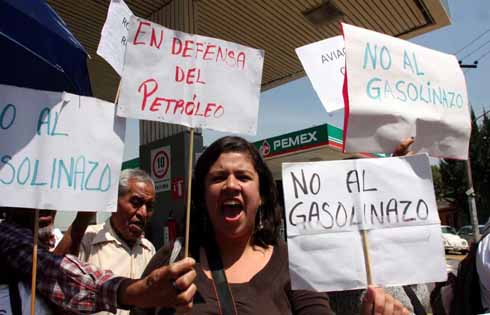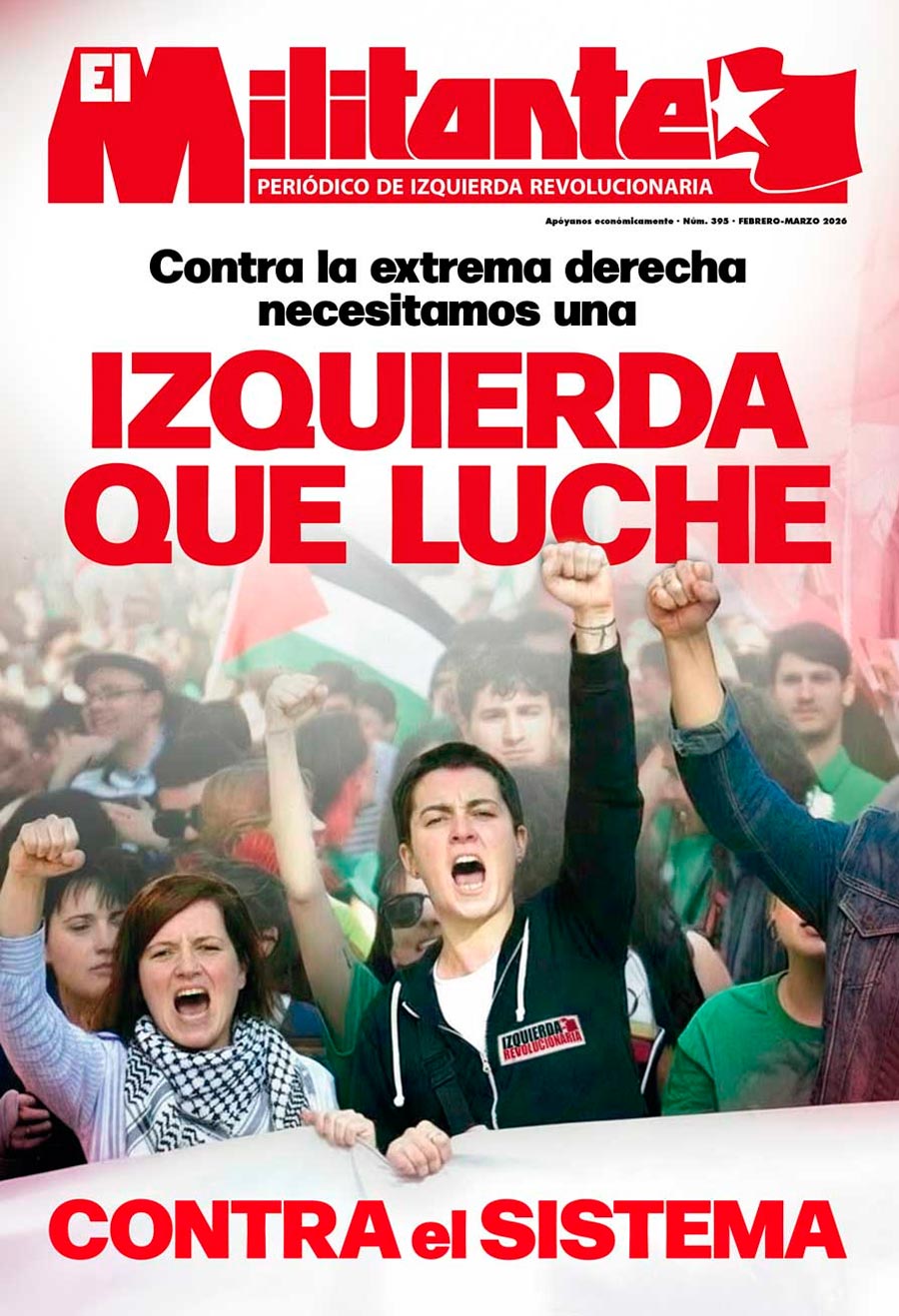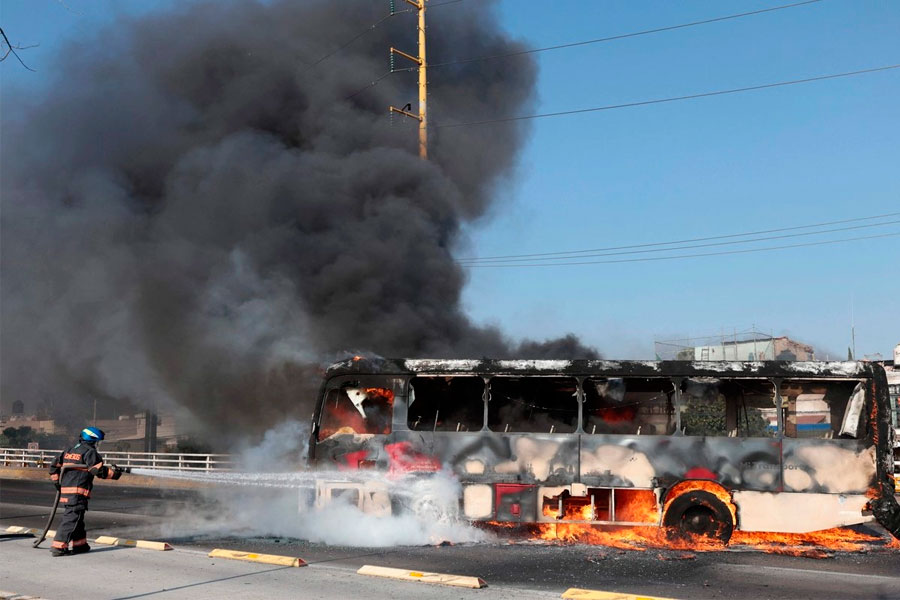Towards a general strike against the Nieto government!
Peña Nieto’s “gasolinazo” attack has been applied as of 1 January. The price hikes range from 14,2% for basic petrol to 20/1% for “premium” petrol, depending on the part of the country in question. This is part of the so-called “liberalization” of petrol prices, through which the government is in the process of withdrawing completely the state subsidy, bit by bit since 2012.
In the last 4 years, petrol prices have increased by 60%. From now on, prices will be fixed on the basis of supply and demand, in line with international prices like any other commodity. In February, a new price hike will be proposed, and from then on the price could rise on a weekly, or even a daily basis.
The context of all this is the progress being made in the privatisation of PEMEX, the state oil company, which has now been extended to distribution and supply to petrol stations. This is very valuable business – 65% of petrol consumed in Mexico is imported from abroad, and the transport of this petrol will now be in the hands of private companies. These price hikes are directly linked to the thirst for profit of these private companies. Yet again it is the working class who will pay for the consequences of this privatisation.
Mass protest movement
The response of the Mexican working people to the “gasolinazo” attack has been clear and strong. For four days, the country has seen intense mobilisations and protests. Mass demonstrations in different cities, the blocking of roads, occupation of petrol stations and closures of Pemex (state oil company) distribution centres, are only some examples of the actions that have taken place.
The government is aware of the widespread discontent. Thus, since the evening of 3 January, they have planted state provocateurs in the movement, to provoke looting and vandalism at service stations and shops. However, despite these provocations, and in response to them, the movement must continue, extend itself to more cities and unite its forces in the coming protests.
The wave of looting continued last Wednesday, spreading from the north of Mexico city to places like Ecatepec, Naucalpan, Atizapán, Tecámac, Huehuetoca, Tultitlán and elsewhere. Even some media reports have told of how the PRI government of Mexico state paid lumpen bands to lead this looting. It is no accident that these acts have taken place in the part of Mexico city which has seen the most intense and numerous protests against the gasolinazo, where petrol stations and major motorways have been shut down by protestors.
Unfortunately, the looting has attracted a layer of the most downtrodden in society, who see it as an opportunity to momentarily alleviate their misery. Once the provocateurs have managed to draw in enough of these elements into the looting, the police arrive and arrest in big numbers. This is in order to give some legitimacy to their tactics, and hide that it is really the state which is behind this looting and vandalism. These acts and methods are in no way a genuine part of the mass struggle against the gasolinazo.
The media are complementing this dirty work of the government, creating a climate of panic and hysteria, trying to equate these mass protests with senseless violence. They try to stop workers going onto the streets for fear of vandalism. On the other hand, they also open the door to state repression, creating an atmosphere in which the intervention of the police and army can seem more justified, not only against looters but against the movement as a whole.
It is fundamentally necessary to denounce the government as absolutely responsible for the looting and vandalism. For many years the government has been creating groups of thugs in universities (called ‘porriles’) which carry out all sorts of violent acts in order to damage the prestige of the Left student movement. They are now repeating the same methods, but in the city communities.
The protests against the gasolinazo must continue and extend to the whole country, based on the widest possible mass mobilisation. It is important that the “informative brigades” which, during the street blockades concentrate on winning the sympathy of working people for the struggle, are maintained. It is also important to identify all the elements which are inciting looting and vandalism and to isolate them, to explain to all that these are not useful methods and only bring repression and discredit the movement. On the other hand, there should be no aggression whatsoever towards works during protests at Pemex sites – these workers are part of our class to be won to the struggle and not our enemies.
Finally, we should work to build a national coordinated movement against the gasolinazo. This struggle must be built as an example for all other sectors and for the Left, to take up the fight against the government. This struggle shows the capacity of the people for self-organisation, but it should be deepened, creating stable committees in every area which can give continuity to the struggle, creating a national coordination which incorporates all the demands of the working people – for health, education, work and housing for all workers in the country.
We must defend the public ownership of oil, with the creation of committees where workers, housewives, youth and peasants, on coordination with the organisations of the fighting left. The protests must be unified and coordinated, ultimately converging in a general strike against the cuts, privatisations and anti-worker policies of the Peña Nieto government.
To the streets against the gasolinazo!
Form local committees!
The unions and Left must join the struggle!
For a general strike against the privatisation of the oil and energy companies!
Down with Peña Nieto!





















































